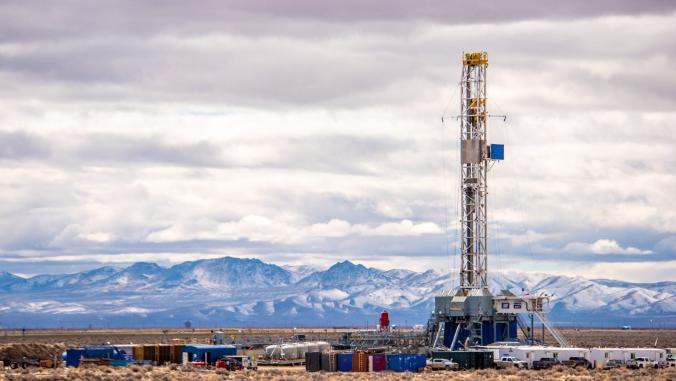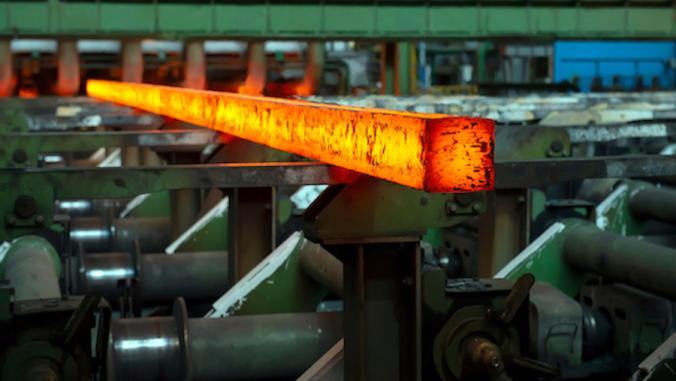Entrepreneur Jigar Shah reflects on clean energy finance, the importance of plain speaking
What gives the founder of Generate Capital joy? Getting the best ideas unlocked.

This article is adapted from the Energy Weekly newsletter, running Thursdays. Subscribe here.
If you’ve heard Jigar Shah talk, it won’t surprise you that he has a couple opinions about a couple things. And his track record shows he might be onto something.
The co-founder of Generate Capital has been following and shaping the clean energy sector for decades. His weapon of choice: financial mechanisms to open up new clean energy options.
Among Shah’s claim to fame is founding SunEdison in 2003, where he designed the first no-money-down solar contract, and heading up Richard Branson’s Carbon War Room to support entrepreneurs working on climate solutions. He’s also shot into earned podcast fame with his no-nonsense style on "The Energy Gang."
I had a chance to chat with Jigar and talk about his communication style, his inspiration and what the private sector can do to leverage clean energy more and better. The transcription of our interview is edited for length and clarity.
Sarah Golden: You wear a lot of different hats — business, finance, podcaster. How do you identify yourself?
Shah: I’m a problem solver. In general, I would say that my go-to tool is finance, just because I think that customers don’t really want to pay cash for stuff. So finance is the key to getting over most of the hurdles that I see. But that’s been my life — listening to people describe their challenges and stepping up to the plate to solve them.
Golden: How much capital have you facilitated in your professional career?
Shah: I’ve never thought about it, but I’ve heard people say that the model that we created at SunEdison has been used to finance over $1 trillion in assets. That makes me feel pretty damn extraordinary.
Golden: At GreenBiz, one of the levers we look at are the collaborations needed to make big changes happen. What collaborations between what sectors and players would be needed to really scale the energy transition and address the climate crisis?
Shah: I think the efforts that are being taken by the Fortune 1000 to really lead things by signing up to EV100 or RE100 or Net Zero Waste or Net Zero Energy Buildings are frankly critical to the demand creation necessary for all these technologies to hit scale. The collaboration with the end consumer is critical to getting things done.
I think the government regulations are critical. A lot of the Fortune 1000 companies, they aren’t going to implement these solutions if it puts them at any sort of disadvantage to their competitors, so leveling the playing field by making everyone do what is technologically and cost-competitive already is critical.it’s important for folks to hear plainly what is promotional speak and what is aspirational speak and what is reality.
Golden: What do you want to communicate to the private sector about how to take on this challenge?
Shah: I think what you’re talking about there is the end consumers, and they really need to set the bar. They have to say, "If you can solve the problem with this kind of solution, with this minimal disruption, at this price point, then we’re all in."
I think that right now, they’re hesitant to do that because they think if they give people too much information, then may [end up paying more]. That lack of transparency is leading to inaction and inertia that isn’t being overcome. What the end customers can do is say, "Look, these input costs are actually a small part of our overall cost structure, let’s be transparent about it, let’s provide the data, and have people rise to the occasion." If that happened, we would see more deployment more quickly.
Golden: You’re known for your style of giving no-nonsense opinions about the clean energy industry, saying how the industry has everything it needs for success.
Shah: I don’t know if it’s a personality flaw or if I’ve been sufficiently empowered because I don’t have bosses to appease, but I have been more free to speak plainly.
Part of the reason I do it, though, is because I was one of those people who mortgaged his house in order to start a company. If you don’t have someone that is talking plainly to those entrepreneurs, many of them will mortgage their house and lose their house because they thought that a trend in the market place was real and ready to transact on. So it’s important for folks to hear plainly what is promotional speak and what is aspirational speak and what is reality.
I think the same thing is true on the other side of the ledger. You have companies today who really do have mandates from their bosses around achieving major sustainability goals, and many of them feel uninformed, which is what GreenBiz does so well, about what is possible. Being clear about what is possible matters.
Golden: You’re credited with a lot of firsts. It always seems like you were in the room where it happened. Are there any calls you wish you made, or things you got wrong?
Shah: I certainly got a lot of things wrong over the years. For instance, I only worked on commercial and industrial solar, not residential solar. And residential solar proved to be a lot easier to scale than commercial. Frankly, utility-scale is more scalable than commercial. Commercial continues to lag.
The bigger thing for me, what I love to do is find someone that is super inspirational who has been working their butt off on something, and to the extent that I can, provide a little bit of help or support and get their best ideas unlocked. That brings me great joy.
It might feel like I’m Forrest Gump and was always at the right place at the right time, and I certainly feel that way a lot, but it’s because I’ve been able to get to people who were real change-makers to invite me into the room to help them achieve their dreams.
Golden: Which accomplishment are you most proud of?
Shah: That’s an easy question. I have employed hundreds of people in my career, and when I see so many companies led today that got their formative training at SunEdison, it warms my heart. You think about all the alumni — when I was running SunEdison from 2003 to 2008 — and where they’ve gotten to in their careers and how much change they’ve been able to make in the world around them, it just makes you feel like everything was worth it.





